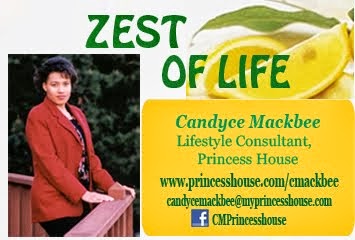Doctors agree that not only are we from different planets, but our nutritional needs are different as well.
This is a two-part post; The first list 5 disease-fighting foods for men and the following post list Super Foods for Super Women.
Man Foods
1. Tomato Sauce. Men who eat a lot of tomatoes, including foods with tomato sauce may be giving themselves a hedge against prostate cancer. So say researchers at Harvard, who studied the eating habits of more than 47,000 male health professionals. They found that men who ate tomato sauce two to four times per week had a 35 percent lower risk of developing prostate cancer than men who ate none. Research also shows that prostate cancer often responds favorably to positive lifestyle changes, especially changes in diet. What’s in the tomato? A carotenoid called lycopene, which tomatoes contain in abundance, is responsible for this positive effect. But scientists were puzzled: tomato juice didn't seem to have a protective effect. Other research showed why. For best absorption, lycopene should be cooked with some kind of fat. So pizza may be just what the doctor ordered!2. Broccoli. While virtually all vegetables deserve a place on the superfoods list, cruciferous vegetables like broccoli are helpful in the prevention of heart disease and cancer. It's loaded with vitamin C, beta-carotene, potassium, and a phytochemical called sulphoraphane, which has strong anticancer (prostate and colon) properties.
A recent Harvard study found that participants who had five servings a week of cruciferious vegetables were half as likely as others to develop bladder cancer, a cancer that affects two to three times as many men as women. This super-nutritious green vegetable may also help lower levels of homocycteine, an amino acid associated with increased risk of heart disease and stroke.
Don't worry, if broccoli is not high on your list of favorite vegetables, then go for other cruciferous choices like cabbage, bok choy, shredded broccoli slaw, cabbage, cauliflower, or Brussels sprouts. And did you ever wonder where the term "cruciferous" originates? "It is not because they are crunchy vegetables, but when the buds from this group of vegetables sprouts, their leaves form a cross like a crucifix," explains Denver dietitian Mary Lee Chin, MS, RD.
.
3. Watermelon. Until the age of 55, more men suffer from high blood pressure than do women. Research suggests that foods rich in potassium can reduce the risk of high blood pressure and stroke. The evidence is so convincing that the Food and Drug Administration recently allowed food labels to bear a health claim about the connection between potassium-rich foods and blood pressure. "There isn't a dietary requirement for potassium," says Kathleen Cappellano, nutrition-information manager at Tufts University in Boston. "But a good goal is about 2000 milligrams or more a day." Watermelon, a rich source of this mineral, has more potassium -- 664 mg -- in one large slice than the amount found in a banana or a cup of orange juice. Watermelon season will be here soon, so cut yourself another slice and enjoy the taste of summer.
4. Oats. Most men get enough carbs in their diets, but they tend to be the wrong kind, experts say. "A diet rich in whole grains provides fiber, vitamins, minerals – all the co-factors for heart health, building muscles, and keeping waistlines small. A small change in the diet can have huge benefits…try whole grain pasta or quinoa, a trendy, grain-tasting grass that's rich in lutein for prostate health.
Oatmeal and barley are rich in soluble fiber, full of B vitamins that can help lower LDL or "bad" cholesterol, and are also good for the prostate. Most experts recommends getting 10-25 grams of soluble fiber a day from oatmeal or other sources of soluble fiber like apples, pears, and beans. When buying grain products, look for those whose labels say they have at least 3-5 g fiber per serving. Remember to avoid digestive problems, increase your fiber intake gradually, and don't forget to drink plenty of water
5. Oysters. Myth has it that oysters are the food of love. And science has proven that Oyster is a known aphrodisiac because it is rich in amino acids that trigger increased levels of sex hormones. Another reason is that high zinc content of oyster aids in the production of testosterone. Well, it's true that just a few oysters each day will deliver a full day’s supply of the antioxidant mineral zinc. Zinc is involved in hundreds of body processes, from

producing DNA to repairing cells. Research shows that adequate zinc may protect against cellular damage that leads to prostate cancer. Shellfish, in general, is an excellent source of zinc, calcium, copper, iodine, iron, potassium, and selenium.
But, the creamy flesh of oysters’ stands apart for its ability to elevate testosterone levels and protect against prostate cancer. They aren't a food most people will eat regularly, but getting five into your diet twice a week will make your weekends more fun.






